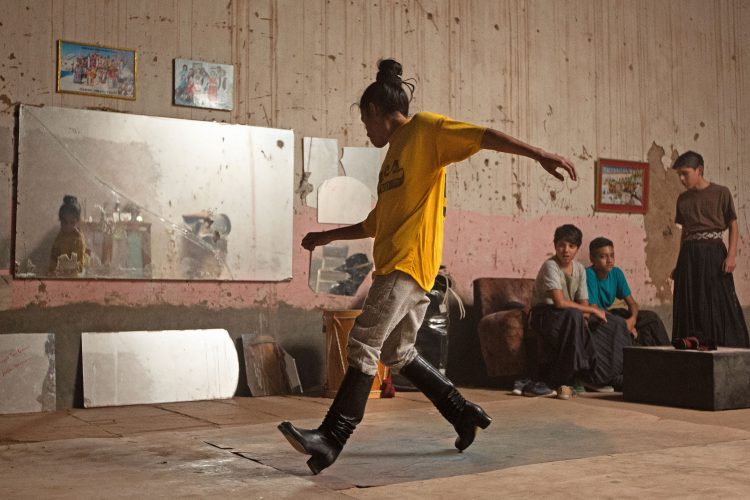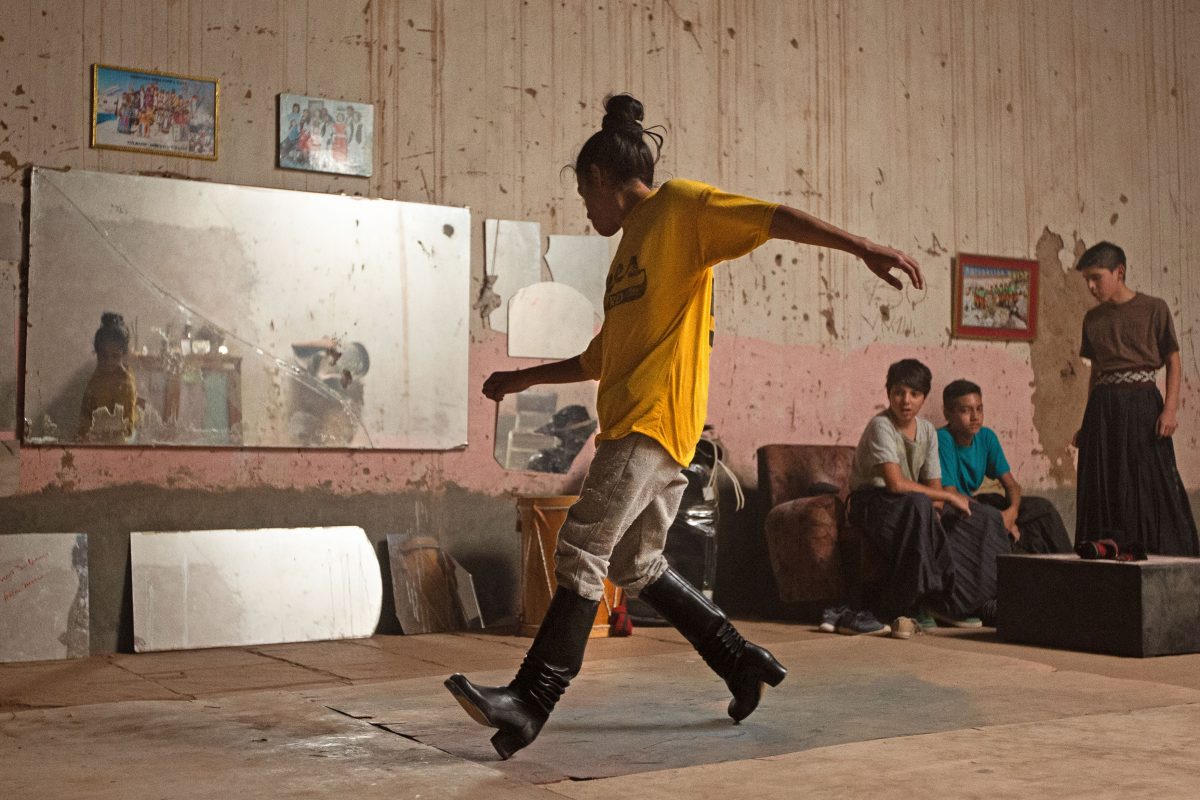This year, with the COVID-19 pandemic disrupting the film industry, a smaller slate of films has been rolled out for the virtual TIFF 2020. Beyond its usual official selection, TIFF has also unveiled 30 independent films from around the world hoping to catch the attention of global festival programmes and buyers. The diverse and eclectic slate of films, grouped together as “TIFF Industry Selects,” feels particularly necessary now as the film industry contemplates its social responsibility. One independent title courting attention is Colombian director Juan Pablo Felix’s debut film, “Karnawal”. “Karnawal” is a restless coming-of-age film set on the border between Bolivia and Argentina and it offers a welcome, different perspective of teenage male angst and growing up.

The film’s title implies numerous layers, although the most obvious meaning is central. The community on the border is preparing for the Andean Carnival. And teenage boy Cabra is preparing for an important dance competition. But carnivals also imply chaos and unpredictability and Cabra has much more to contend with than trying to get the right boots for his routine. Cabra is less than fond of his single-mother’s maybe-maybe-not boyfriend, Cabra is fending off teenage peers who have him caught up in potential criminal activities, and Cabra’s father’s imminent release from jail seems set to complicate matters even more. Even as dance is central to Cabra, and to “Karnawal,” for a long stretch of the film it seems almost incidental.
Felix, instead, develops Cabra’s own complicated personal life in deft and specific ways. “Karnawal” offers a welcome glimpse into a particular Latin America that feels especially welcome and thoughtful and Felix’s economical direction quickly builds the immediacy of the situation. Its familiarity becomes its boon, and by the time Alfred Castro appears as Cabra’s enigmatic father, the film turns into an excellent examination of complicated families. For the bulk of the middle section, the film becomes a three-hander as Cabra (played by newcomer Martin López Lacci) tries to out-angst his parents. Monica Lairana, as his mother, gives the film’s best performance as a character navigating her uncertainty about mothering a teenage boy intent on being his own man, and managing her complicated feelings for an estranged husband that frustrates and enrages as much as he charms and amuses her. Felix reveals a sharp observational sense, as the middle section benefits from multiple scenes of basic moments – a shared dinner, an argument in a car, a taut reunion – that reveal the specificity of these characters while making them feel like people you know. Later, when the trio is joined by Diego Cremonesi as a romantic foil, the tension is even more compelling to watch.
When that observational middle section gives way to the charged final act, where chickens come home to roost, the film’s dip into a thriller feels less adept. But, even in these moments, Felix’s direction shows signs of skill as he finds tiny moments of character development in the most unusual, but effective ways. It’s the kind of thoughtful investment in these characters, that the film depends on. In some ways, “Karnawal” ends up feeling more sedate in that thriller-esque final act than you’d expect, as if Felix is not quite certain about making the messier, more unpredictable film that seems to exist underneath. But his work with his actors is consistent throughout.
This is a coming-of-age tale and Lacci shows his newcomer status in some key scenes but Felix’s camera recognises the electricity of the young actor’s impenetrable stare. That stare feels like the fulcrum of the film’s complicated register. There’s an icy-opacity to the stare that’s almost too good at mimicking the inscrutability of teenage frustration.
Felix shrewdly ends the film on his best asset and, in a moment of openness, his dancing skills. The final ten-minutes return to dance, a celebration of Argentina’s Gaucho culture that offers a glimpse into a world that many non-Latin-Americans may not be familiar with. Felix sought out Lacci, preferring a non-actor who could dance, and it pays off. The dance-sequence when it comes is propulsive, and energetic and deepens its context by using it to build on the character and themes. Felix opts for something more complicated than unbridled triumph and celebration, and instead marks the final scene – and shot – of “Karnawal” with something more mindful of the world’s limitation. For Cabra, and the film, coming-of-age is an act of recognising the limits of the world around us.

